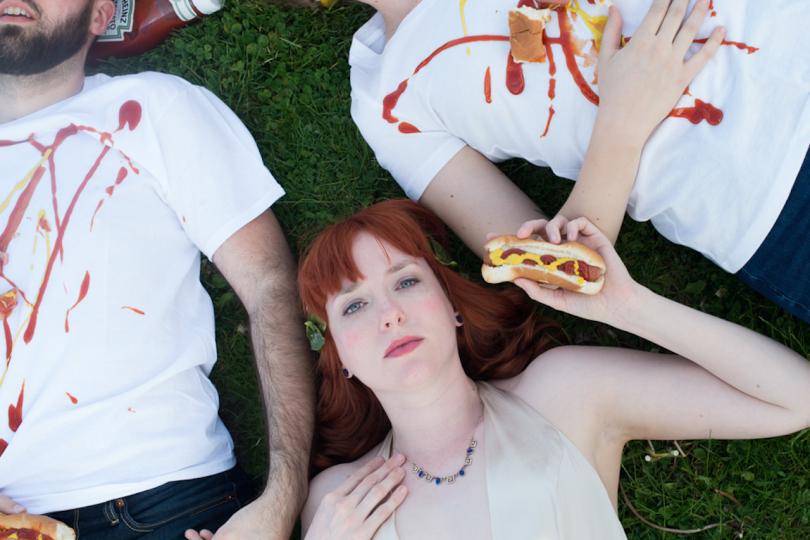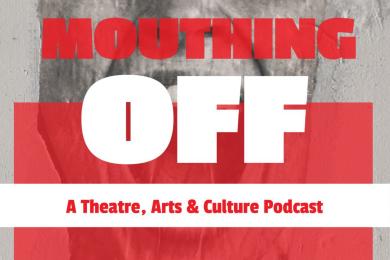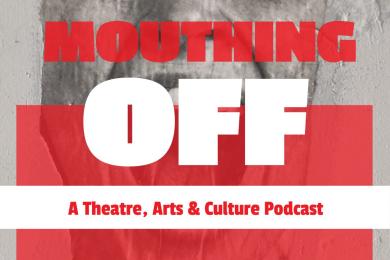Dialogue 5: Theater is more fun to make than film

Kevin—
The Fringe Festival is coming. Which is a good chance to wrap up this conversation, for now, and also bring it back to where we began: What are the differences between theater and film, especially locally? I’ll also address your more personal question about my own journey as I do that, a little.
I wanted to say that the Fringe is a great example of the unique power of live theater to bring a community together, but as I type that I realize that isn’t true, is it? I was going to bring up that the festival is full of all kinds of artists, wannabe artists, and amateurs who may have written their script the night before opening or may have been perfecting it for years and who mingle indistinguishably from the audience into an exciting 3-dimensional give and take experience. But, though I’ve never been to a film festival, I imagine a film fest has the same vibe, doesn’t it? Films of all kinds of genres and qualities, produced quickly or slowly, and an excitement of discovery in the audience and the opportunity to meet and mingle with the artists who made the work. This happens at film festivals too, am I right? Arts festivals are fun!
So, how do I find a better way to justify my chosen industry—cause clearly that’s what I’m trying to do when I provoke you into this conversation. In the face of stellar television writing and the amazing potential in special effects in current movie-making, why am I stubbornly clinging to theater as a medium? Of the five Jerome Fellows that I came to Minneapolis with, three are currently in L.A. Three more playwrights who I spent significant time with in my early days here are also there, and I can easily name five more playwright acquaintances who passed through Minneapolis but now write for television shows.
Here goes:
1. The process of making theater is more fun than the process of making film or television. As you said, shooting film is extremely dull. Lots of standing around waiting for the right light, or repetition of the same line or two without ever building any momentum. (The momentum is built in editing.) The majority of rehearsals for a good play, on the other hand, involve lots of really smart, talented people, playing; and negotiating ideas; and throwing their talents together into a pot they hope steams and ignites. It can be thrilling, and full of energy, and rarely is dull.
2. Magic. Studies have shown—or at least the Facebook headlines I’ve seen say studies have shown—that screen time constricts our brain’s activity. Something like that. When we watch TV or spend time in front of computers, studies I think have shown, that our perceptive awareness of the world shrinks down to focus on the pixels. I latch onto this deeply paraphrased conclusion because it justifies this thing I’ve felt since childhood but have always felt shouldn’t be said out loud for fear of sounding like a cranky old man—Live theater is, for some reason, healthier for the human soul than anything you can put on a screen.
I assume that statement pisses you off, so I’m putting it out there for you to knock down. Disabuse me of such a notion. Please. Maybe then I can move to L.A. too and write things more people will see.
Now, here’s where I get just a little more personal, as you did. I never precisely put my finger on it until you phrased the question, “What else do I know anything about?” I guess I imagined that the job of the writer was always, first and foremost, to ask that question. I think I wanted to be a professional writer because I thought it would mean that someone might pay me to repeatedly ask, answer, and then ask again that question.
Honestly, in the beginning, I doubt that I cared what kind of writer. Movies, tv, books, theater, poetry—all of it opened up worlds to me, and I wanted to spend the rest of my life exploring and then sharing those explorations with others in a way that lifted up and opened up worlds for them too.
(Side note: I really hate the writing advice: “Write what you know.” If I already know it, why would I need to write about it? And I believe it leads directly to the uncurious, formulaic crap that we both dislike. I imagine that the first person who coined the term actually meant to say, “Make sure you know what you write” i.e. learn everything you can about the subject when you decide you’re going to write about it.)
It saddens me to discover that my definition of a writer was not widely shared by the professional theater, film, or tv industry. Or, that I haven’t yet been good enough as a writer to justify my approach. It’s always hard to know the difference (is it me or them?). Because, in all honesty, I don’t think professional theater is significantly better than film or television in adhering to principles of creativity and curiosity, first and foremost. We all need to sell tickets. We all get caught up in formulas. We all lose sight of the first things that motivated us to love the work we do. And, maybe, we live in a uniquely uncurious time? (Or maybe there is always a tension between “ignorance is bliss” and rigorous curiosity?)
Anyway, in the theater though, it seems to me that the writer still owns his or her work, the process is more fun, and though the audiences are smaller, the opportunity to have deeper impact, a magical three-dimensional impact on an individual in a group, is greater.
But I could just be making excuses for not moving to L.A. and trying to apply my writing talents to all the fantastic scripts they’re making there.
One more idea that may be an excuse for living in Minnesota, or not. Out here in the capitol of the North, or Upper Midwest, or flyover country—whatever you want to call it—I sometimes agree with you that we have the chance to discover some new ways of telling stories, to take advantage of the low cost of living and high support for the arts, to take more risks. To ask ourselves what we don’t know but should and then make a new kind of work that represents truer, more current answers to those questions. . . but then other times I think that the low cost of living just makes us complacent.
Clearly, I am always of at least two minds on everything, and I welcome your ideas to come and burst my bubble. Show me more of the magic in the film world. I’m begging you. What do you feel is magical about film?
And that may be a great place to end this enlightening lazy summer exchange. Magic. How is film just as magic (if not more so) than theater?
See you at the Fringe,
Alan


